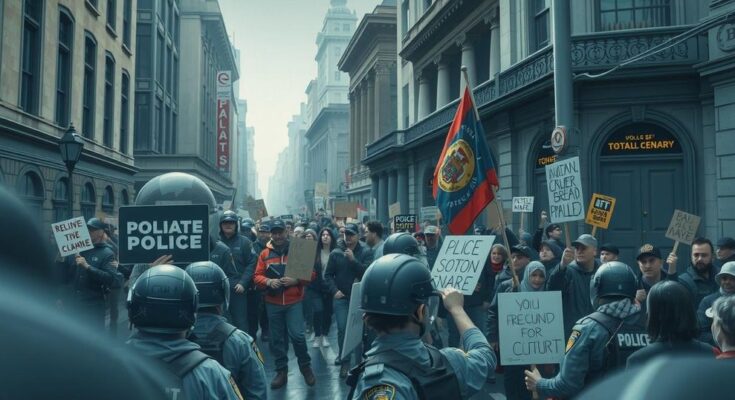Turkey is currently ensnared in a profound socio-political crisis, ignited by the detention of Istanbul Mayor Ekrem İmamoğlu on 19 March. This event triggered mass protests, with tens of thousands taking to the streets against allegations of corruption and terrorism. Following İmamoğlu’s nomination as the main opposition candidate for the 2028 presidential election, he was placed in pre-trial detention, alongside district mayors facing similar charges, further escalating tensions.
By 26 March, authorities reported that over 1,879 individuals had been detained amidst the protests, which were met with excessive police force. Protesters faced brutal treatment, with reports of beatings and the indiscriminate use of pepper spray, tear gas, and water cannons. The interior minister claimed that 150 police officers were injured, but did not disclose the number of wounded protesters, highlighting a concerning lack of transparency.
The crackdown extends beyond mere street demonstrations. Members of the Eğitim-Sen teachers’ union faced house arrests for their solidarity actions with protesting university students, while their representative at Istanbul University was detained. Moreover, blanket bans on protests have been enforced in major cities since mid-March, raising alarms about the rights to free assembly and expression.
We remind Turkish authorities of their commitments under international human rights law to protect the right to peaceful assembly. Any restrictions must a) be established by law, b) serve a legitimate purpose, and c) be necessary and proportionate, rendering blanket bans unjustifiable. Additionally, the use of excessive force against peaceful demonstrators is a violation that must be rigorously scrutinised and investigated.
In stark conjunction with the protests, a disturbing trend has emerged against independent media and journalism. At least 11 journalists have been detained for covering the events. The BBC’s Mark Lowen was also deported under dubious grounds citing public threats, reflecting the climate of intimidation affecting media presence.
Turkey’s media regulatory body, RTÜK, has issued strict warnings for media outlets to eliminate any political bias from their reporting, threatening maximum penalties. Recent fines and broadcast suspensions against several channels illustrate a blatant attempt to silence dissenting voices and enforce a narrative aligned with governmental interests.
Amidst these events, social media remains one of the few platforms for independent expression in Turkey. Yet, authorities have actively sought to stifle dissent online through bandwidth throttling and blockage of protest-related content. The Information Technologies Authority (BTK) imposed swift restrictions, raising concerns about adherence to human rights obligations, particularly regarding freedom of expression.
Social media companies have been pressured into compliance, resulting in hundreds of accounts being blocked on directives from authorities. Platforms like X, although facing legal challenges, have signalled a resistance to comply with directives that infringe on the rights of its users and limit free discourse.
Turkey must ensure internet accessibility and reject laws that suppress free expression while the independent media and journalists must be free from intimidation and reprisals. Only through embracing these principles can Turkey create a landscape of genuine democratic engagement and public discourse.
Turkey is in a socio-political crisis following the detention of Istanbul Mayor Ekrem İmamoğlu, sparking mass protests resulting in over 1,879 arrests. Authorities have responded with excessive force, imposing blanket bans on protests and silencing independent media. Journalists face detention and intimidation, while social media is subjected to censorship aimed at controlling dissent. The call for basic human rights, like freedom of assembly and expression, is urgent as the country navigates these turbulent times.
In conclusion, the situation in Turkey calls for immediate attention to human rights, particularly the rights to peaceful assembly and freedom of expression. With increasing police repression, media intimidation, and online censorship, the integrity of civil liberties is under siege. It is imperative that Turkish authorities honour their international obligations and allow for dissent, transparent reporting, and free speech, paving the way for a healthier democratic discourse in the country.
Original Source: www.fidh.org



